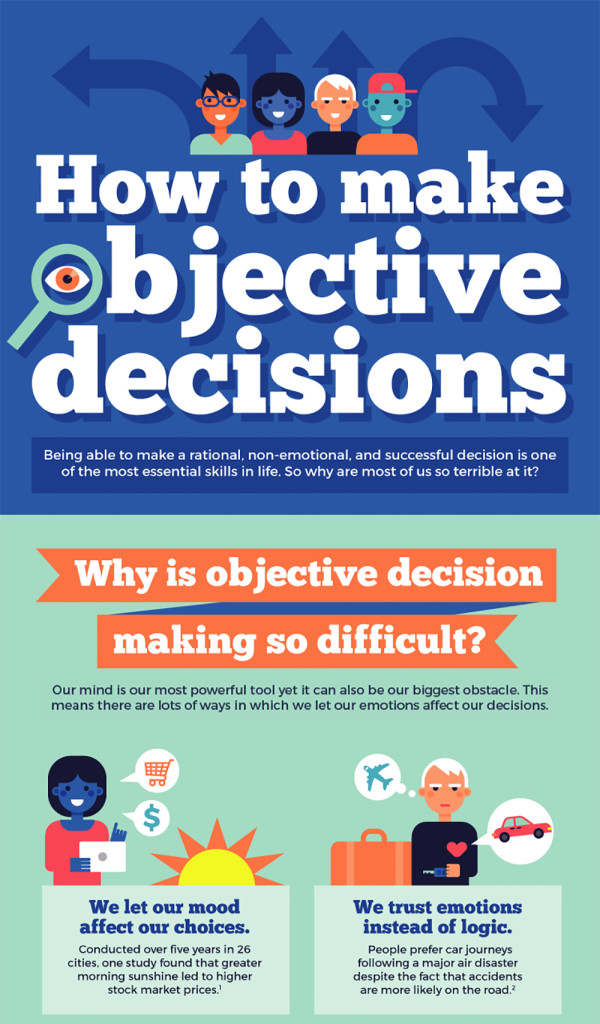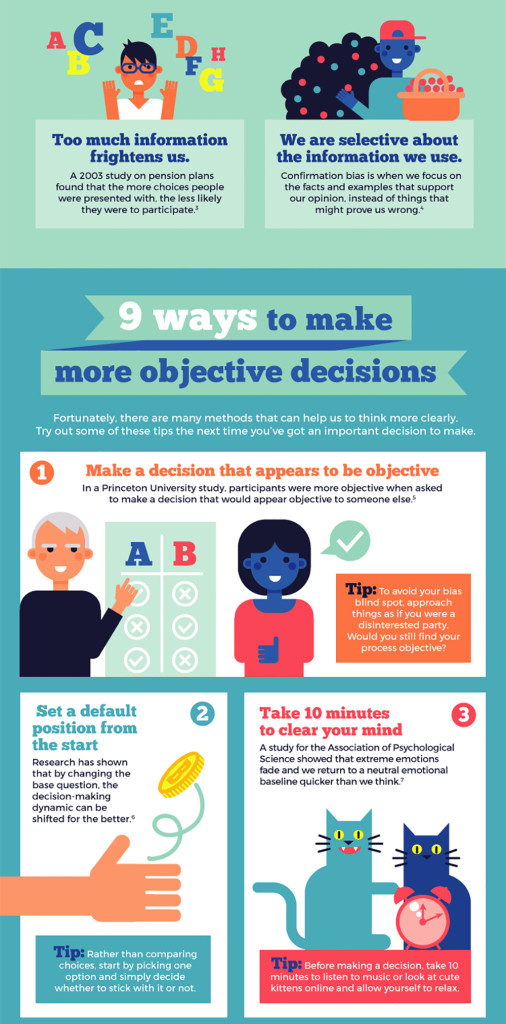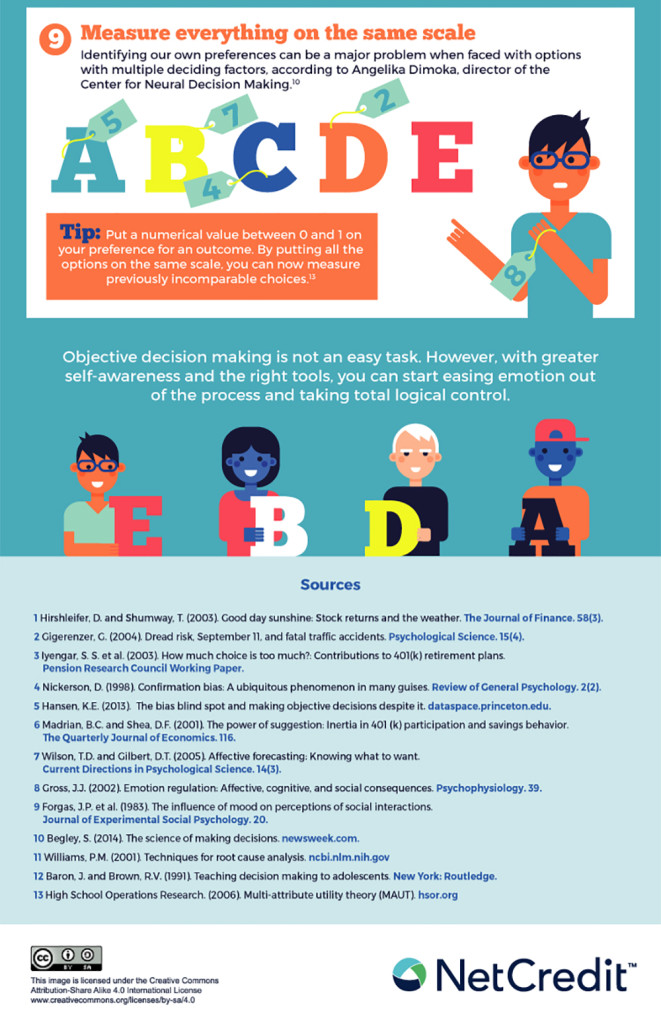The human mind is often its own worst enemy. In stressful situations, your brain can be actively working against your best interests, pushing you to make a choice that seems comfortable in the short term but may be harmful or even fatal in the long term. During survival situations, we may not even know we're being irrational until it's too late — individuals who are freezing to death have a tendency to tear off their warm clothes, for example.

Your brain is constantly interpreting signals from your nervous system and trying to use that data to keep you alive.
Fortunately, there's still hope. With the right preparation, you can learn to override some of these impulses, suppress your conflicting emotions, and make objective decisions. It just takes study, effort, and practice. The following infographic from NetCredit shows nine ways to make more objective decisions about any critical subject — finances, your career, medical issues, or what to do during an emergency situation. Click here to download a full-size version of this infographic.




In case you're wondering how these steps can be related to survival, here are some practical examples:
- Ask yourself, “If a survival expert was faced with this situation, what would that person do?”
- Instead of saying “Should I stay here and wait for rescue or go look for an escape route?” ask “Is staying here a good decision?”
- If it's possible and safe to do so, wait 10 minutes and consider the ramifications before you abandon your shelter and bug out.
- View challenges as opportunities for growth. For example, climbing a mountain will be tough, but it'll give you an observation point and access to new resources.

Subscribe Today and Save!

If all you can think about is how difficult the road ahead will be, you'll probably give up.
- If you're especially negative or frustrated, be cautious so this doesn't cause you to give up on opportunities solely because you think they'll fail.
- Don't think “I had plenty of water last time I went hiking” or “I haven't gotten lost before” — that may not be the case this time.
- Repeatedly ask yourself why you're determined to survive to find and focus on the root of your motivation.
- Set a goal to cover 10 miles. Consider whether you should walk, bike, or drive. Research the road and weather conditions. Consider the outcome if you get stuck in a traffic jam, or become injured while walking. Plan how you will cover those 10 miles on your selected mode of transportation.
- This one is pretty complicated to explain in the context of survival. Let's say you need to decide between burning all your firewood at once to create a large but brief smoke signal, burning a medium amount of firewood to create a medium-sized and moderate duration signal, or burning a tiny amount of firewood over a very long period of time to make a small but long-lasting signal. The attributes here are wood consumption, fire duration, and smoke signal size. Multi-attribute utility theory (MAUT) can help you decide the best choice considering all these attributes — but it's essentially reducing the choice to an advanced math problem.
 STAY SAFE: Download a Free copy of the OFFGRID Outbreak Issue
STAY SAFE: Download a Free copy of the OFFGRID Outbreak Issue
In issue 12,
Offgrid Magazine took a hard look at what you should be aware of in the event of a viral outbreak. We're now offering a free digital copy of the OffGrid Outbreak issue when you subscribe to the OffGrid email newsletter. Sign up and get your free digital copy


 STAY SAFE: Download a Free copy of the OFFGRID Outbreak Issue
STAY SAFE: Download a Free copy of the OFFGRID Outbreak Issue
No Comments